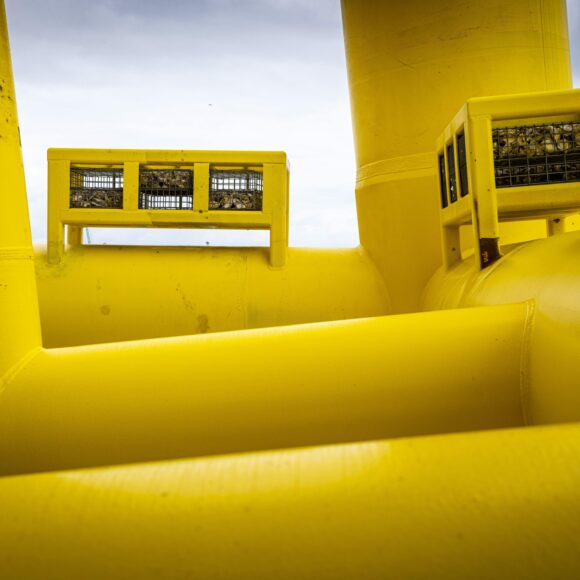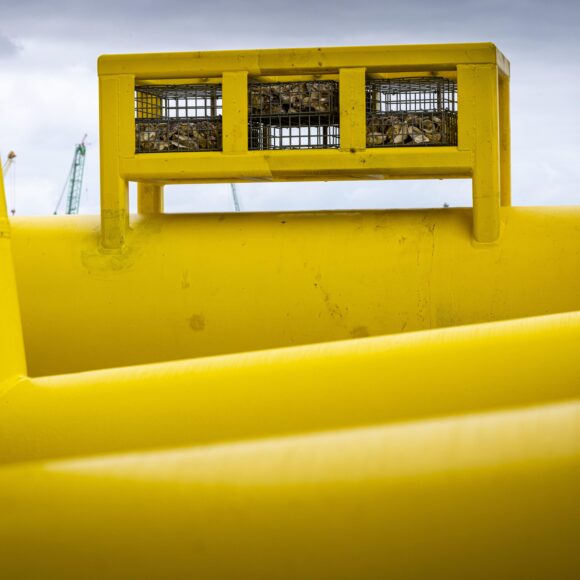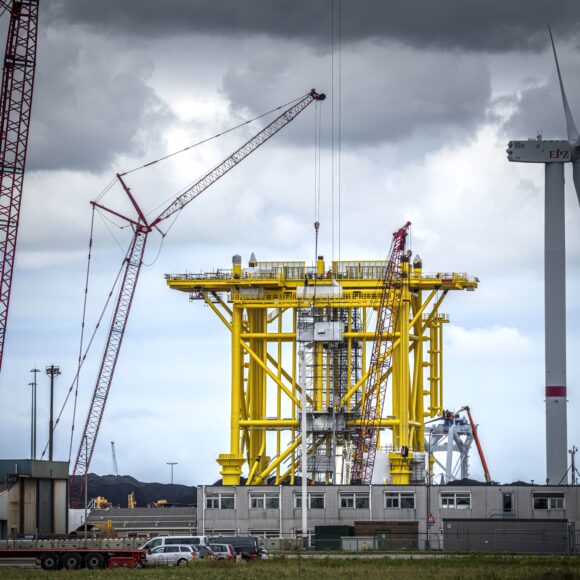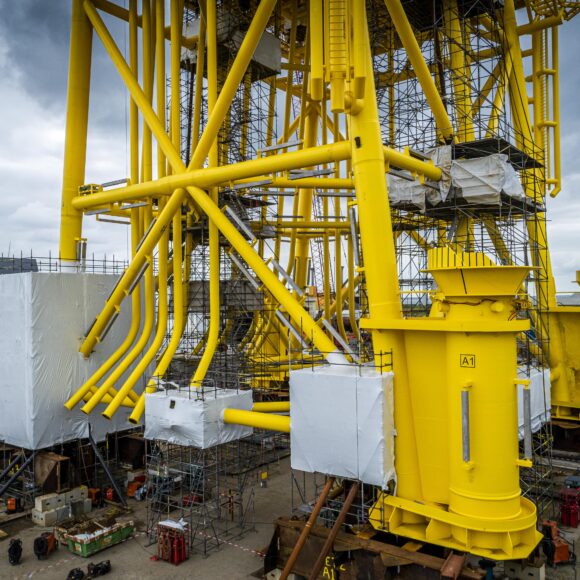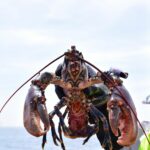Fish Hotels attached to offshore high voltage stations
Objectives
To enhance biodiversity around TenneT’s offshore high voltage station by creating shelter and safe foraging opportunities for diverse types of young fish and potentially crustaceans.
Short description
In 2021, TenneT, the Dutch Transmission System Operator, installed two fish hotels in the jacket of the offshore high voltage station (OHVS) platform located at Hollandse Kust NoordThe Hollandse Kust Noord offshore wind farm is located 18.5Km from the Dutch shore. It consists of 69 wind turbines with and a total capacity of 759 MW. in the Netherlands. Each hotel includes three ‘biohuts’, which are essentially steel boxes partly filled with shell or rock and covered with mesh.
The transition from larval to juvenile fish is a precarious stage of their life cycle. Fish hotels allow various species of young fish to enter while keeping predators out, providing shelter and safe foraging opportunities. This setup enables more individuals to survive this challenging life stage. Additionally, the increased presence of fish around the infrastructure attracts other marine species due to the rise in food availability. Fish hotels can also potentially benefit other species such as crustaceans.
Due to the risk of sediment deposition and the presence of predators in the seabed, fish hotels are better positioned elevated above the ground and outside of the surf zone (the area where the waves break) to reduce pressure on to the structure. For this project, TenneT collaborated with an interdisciplinary team of engineers, cost and maintenance experts, offshore surveyors, and ecologists, including the eco-engineering company Ecocean, and the contractors Smulters, Equans and lemants.
After demonstrating the project’s feasibility, TenneT decided to include fish hotels in its technical standards for future developments. Two fish hotels, each containing three biohuts, have now been integrated into the jackets of Hollandse Kust West (Alpha). The first ecological monitoring is scheduled to take place in 2024 or 2025. For this monitoring, TenneT plans to use ROV for video imaging and eDNA analysis to assess the increased biodiversity.
Learn more
Criteria for selection: 1+2+3+4 (a) + 5
Information updated on: 27 August 2025
